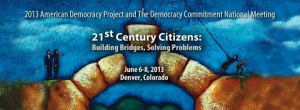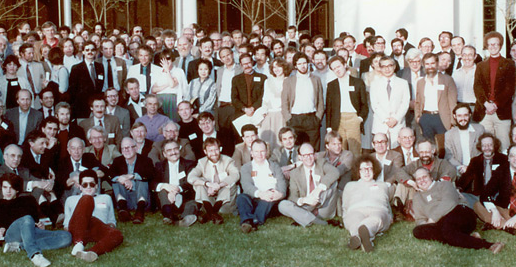Shrinking enrollments and subsidies lend the humanities an air of crisis. Several states are considering cutting public support for majors that do not lead directly to jobs. North Carolina governor Pat McCrory discussed that idea on the radio with former NEH director Bill Bennett, who himself holds a philosophy PhD. During the conversation, Bennett “made a joke about gender studies courses at UNC-Chapel Hill. ‘If you want to take gender studies that’s fine, go to a private school and take it … But I don’t want to subsidize that if that’s not going to get someone a job.’” Although gender studies includes a lot of social science, the other departments that would suffer the most from cuts would likely be in the humanities.
This moment is particularly difficult, but the debate about the public value of the humanities is a perennial one. The word “humanist” derives from the informal name for a new kind of tutor who emerged during the Renaissance. Medieval universities had offered a curriculum that strongly emphasized abstract, theoretical, and technical subjects—above all, philosophy and theology. The main purpose was to prepare senior churchmen. Young men interested in secular, public roles—as courtiers (in monarchies) or office-holders (in republics)—sought a different kind of education that was more practical, concrete, and likely to make them persuasive in public. They attended universities and paid private “humanists” to tutor them on the side, or else they simply studied with humanists, whose curricula began to influence the grammar schools and then the universities of Europe.
The original purpose of the humanities, in short, was to prepare young men to be effective public speakers and to have secular public virtues. The mainstay of humanistic education was the study of narrative, both historical and fictional. Humanists also taught philosophy, but they shifted the focus from abstract arguments to characters like Socrates and the literary form of works by authors like Plato, Seneca, Erasmus, and Montaigne.
Shakespeare received a humanistic education in his grammar school, and he nicely summarizes its goals at the beginning of The Taming of the Shrew. Young Lucentio hopes to “deck his fortune with his virtuous deeds”—and to accomplish that, he needs an education. He sets off for the great medieval university of Padua–the first university in all of Europe–where he plans to “plunge … in the deep” by studying philosophy. The form of philosophy that he would encounter at Padua would be scholasticism, the impressively developed and refined offshoot of Aristotle’s thought. He is rather like a young person today who wants to study economics: a difficult, highly technical discipline that promises professional career opportunities and that pretends to explain important general questions. Lucentio’s servant (and perhaps his tutor) Tranio politely suggests that he should mix that diet with some literature and rhetoric:
Mi perdonato, gentle master mine,
I am in all affected as yourself;
Glad that you thus continue your resolve
To suck the sweets of sweet philosophy.
Only, good master, while we do admire
This virtue and this moral discipline,
Let’s be no stoics nor no stocks, I pray;
Or so devote to Aristotle’s cheques
As Ovid be an outcast quite abjured:
Balk logic with acquaintance that you have
And practise rhetoric in your common talk … (I.i)
Although the humanities originated as preparation for public life and “common talk,” in the century after Shakespeare, humanistic scholars became increasingly sophisticated about the texts they taught and the historical contexts in which those texts originated. The original idea was to inspire young men with the examples of heroes from the classical past. But the more that humanistic scholars understood classical civilization, the more remote, complex, and varied it appeared. They pursued the truth with the most sophisticated available research tools, treating their impact on students as secondary. The Battle of the Books that broke out in England around 1700 appeared to be a humorous debate between the “wits” and the “pedants,” but in part it was a conflict between amateur enthusiasts of classical texts and professional classicists. Insofar as the amateur enthusiasts—the “wits”—made a serious case for their side, they argued that the humanities should support public life. The pedants retorted that the amateurs did not really understand the texts they appreciated. (I draw this example and much of my argument from the work of my father, Joseph M. Levine.)
The debate about the public role of the humanities has never been resolved, and perhaps never will be, because there is enduring merit in both sides. But as long as we expect the public to fund the humanities with their taxes, it will be essential to make a persuasive case to voters. That case must somehow honor both rigor and relevance, both scholarly excellence and some kind of “common talk.”
[References: Kevin Kiley, Another Liberal Arts Critic, Inside Hiigher Ed, Jan 30, 2013; Joseph M. Levine, The Battle of the Books: History and Literature in the Augustan Age (Ithaca, NY: Cornell University Press, 1991). See also “Joseph M. Levine,” “the future of classics,” “humanistic versus technical philosophy,” and “the place of social impact in a university.”]
 (Denver) I am here for the Association of American State Colleges and Universities’ annual ADP/TDC National Meeting. “ADP” stands for the American Democracy Project, which is a robust consortium of state colleges and universities committed to their civic mission. “TDC” is The Democracy Commitment, a parallel consortium of community colleges. I have attended this conference before and look forward to meeting many committed educators from colleges and universities. The institutions gathered here serve first-generation college students, part-time students, older students, and people who are paying their way through school. The colleges and universities are deeply rooted in their geographical communities, drawing their students, faculty, and staff locally. Because of the strength of the ADP and TDC as networks and the demographics of the students they engage, the annual conference has also become an important gathering place for people concerned with civic renewal who don’t happen to work in state colleges and universities. I’ll be giving the morning plenary talk today and participating in many sessions and events. The Twitter hashtag is #ADPTDC13.
(Denver) I am here for the Association of American State Colleges and Universities’ annual ADP/TDC National Meeting. “ADP” stands for the American Democracy Project, which is a robust consortium of state colleges and universities committed to their civic mission. “TDC” is The Democracy Commitment, a parallel consortium of community colleges. I have attended this conference before and look forward to meeting many committed educators from colleges and universities. The institutions gathered here serve first-generation college students, part-time students, older students, and people who are paying their way through school. The colleges and universities are deeply rooted in their geographical communities, drawing their students, faculty, and staff locally. Because of the strength of the ADP and TDC as networks and the demographics of the students they engage, the annual conference has also become an important gathering place for people concerned with civic renewal who don’t happen to work in state colleges and universities. I’ll be giving the morning plenary talk today and participating in many sessions and events. The Twitter hashtag is #ADPTDC13.